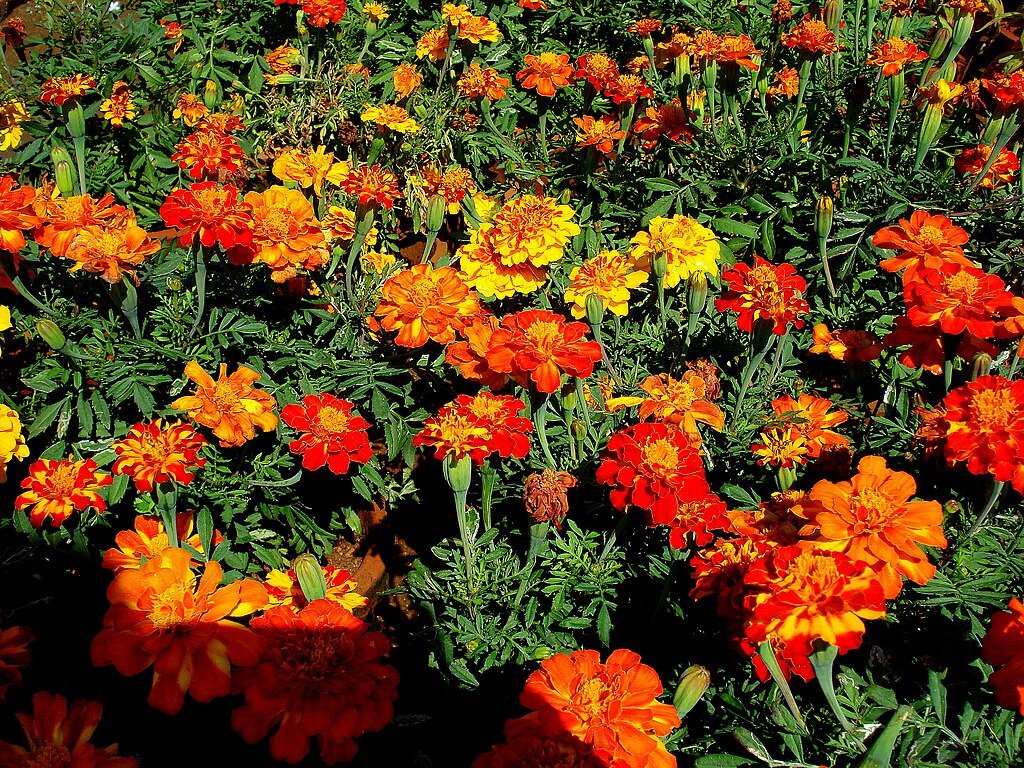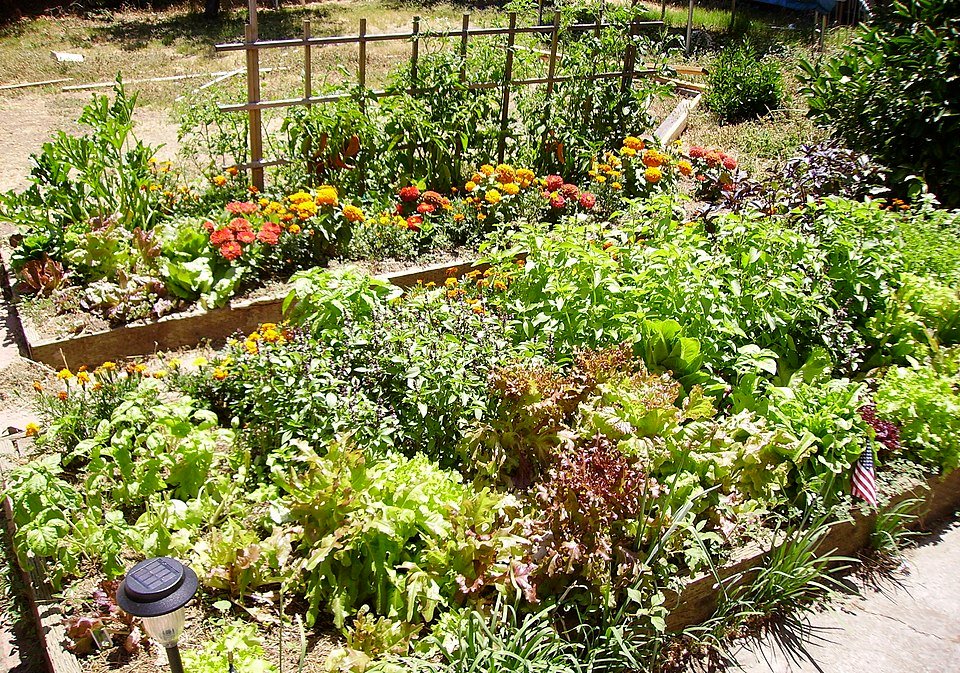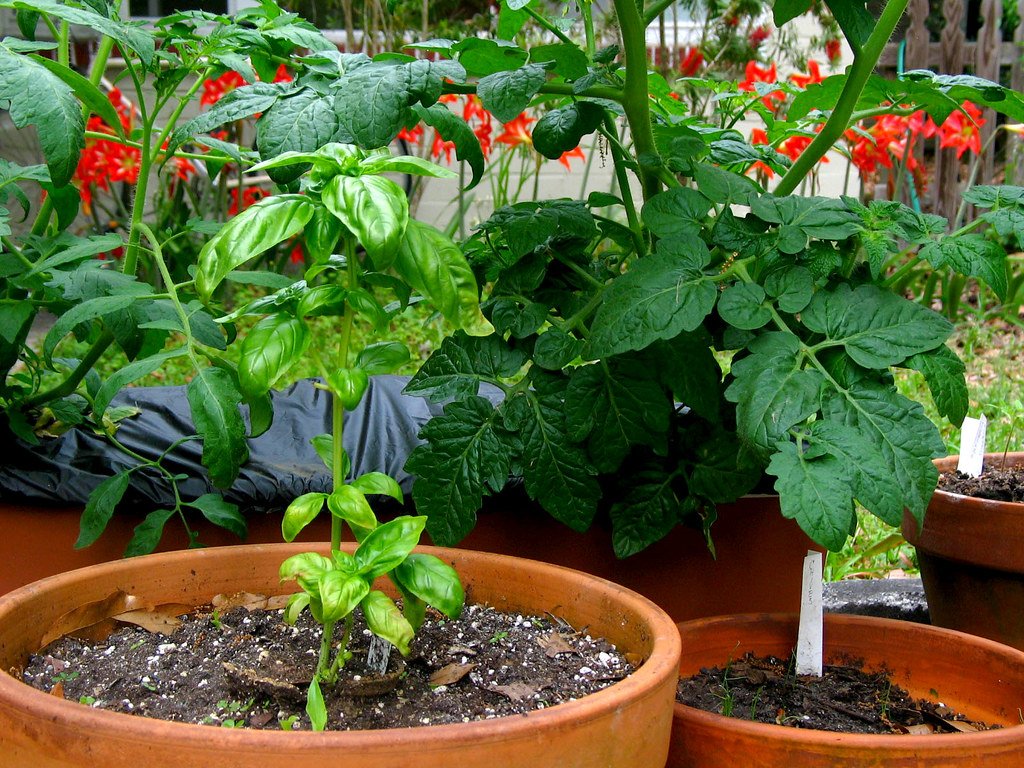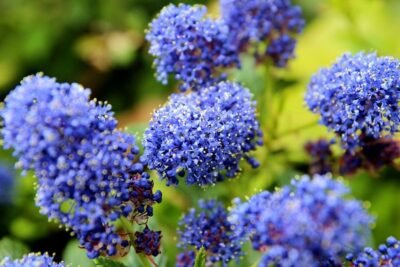
Plants That Naturally Repel Pests

Have you ever planted a beautiful garden only to find it crawling with bugs a few weeks later? Imagine growing strong, healthy plants, without needing any harsh sprays or chemicals. There’s a natural way to keep unwanted pests away, and it starts with the plants you choose. In this article, you’ll learn which plants can protect your garden like tiny green bodyguards, and you might be surprised by some of them.
Keep reading to discover which common herbs and flowers can do more than just look pretty. Some of these plants even smell amazing while keeping bugs at bay!
- Why Use Plants to Repel Pests?
- 1. Basil – Goodbye Mosquitoes and Flies
- 2. Lavender – Repels Moths, Fleas, and Mosquitoes
- 3. Marigolds – Protect Your Veggies
- 4. Mint – Keeps Ants and Spiders Away
- 5. Rosemary – Natural Mosquito Shield
- 6. Lemongrass – Source of Citronella
- 7. Chrysanthemums – Natural Insecticide
- 8. Catnip – Mosquitoes Hate It
- 9. Garlic – Repels Almost Everything
- 10. Petunias – The Low-Maintenance Defender
- How to Use These Plants for Best Results
- Are These Plants a Magic Fix?
- Final Thoughts
Why Use Plants to Repel Pests?
Pests like aphids, mosquitoes, and beetles can damage or even destroy your garden. Many people turn to chemical pesticides, but these can be expensive, harmful to pets, and bad for the environment.
Luckily, nature has already solved this problem for us. Some plants produce smells or oils that insects hate. By planting these in or around your garden, you can reduce the number of pests naturally.
1. Basil – Goodbye Mosquitoes and Flies

Basil isn’t just for pizza and pasta. Its strong scent keeps away mosquitoes, houseflies, and even aphids. You can plant basil near your tomatoes to protect them from bugs, or keep a pot near your door to stop flies from coming inside.
Bonus tip: Pick fresh basil leaves and rub them on your arms to act like a natural insect repellent!
2. Lavender – Repels Moths, Fleas, and Mosquitoes
Lavender is beautiful, smells lovely, and bugs can’t stand it. Insects like moths, fleas, and mosquitoes stay far away from it. Plant lavender near windows or walkways to enjoy its scent while keeping pests out.
It also attracts pollinators like bees and butterflies, which are good for your garden.
3. Marigolds – Protect Your Veggies
These bright flowers are more than just decoration. Marigolds release a scent that repels aphids, mosquitoes, and even rabbits. They’re especially helpful when planted near vegetables like beans, tomatoes, and cucumbers.
There’s also a secret underground: marigolds protect against nematodes, tiny worms that harm plant roots.
4. Mint – Keeps Ants and Spiders Away
Mint grows fast and spreads quickly, sometimes too quickly. But its strong smell chases off ants, spiders, and even mice. It’s best to plant mint in pots so it doesn’t take over your whole garden.
Crushing a few leaves and placing them in your kitchen or near doors also helps keep bugs out of the house.
5. Rosemary – Natural Mosquito Shield
Rosemary is another herb that smells great to humans but awful to bugs. It’s especially good at keeping mosquitoes and cabbage moths away. You can use it as a border plant or grow it in pots around your patio.
When burned, rosemary’s smoke also drives away flying insects, perfect for summer BBQs.
6. Lemongrass – Source of Citronella
Lemongrass contains citronella, a well-known mosquito repellent. Plant it in warm climates or large pots in colder areas. Its strong citrus smell sends mosquitoes flying the other way.
It also gives your garden a tropical look and can be used in cooking.
7. Chrysanthemums – Natural Insecticide
These flowers contain a chemical called pyrethrin that’s used in many natural bug sprays. Chrysanthemums repel roaches, ticks, ants, silverfish, and more.
They’re pretty, colorful, and powerful against a wide range of garden pests.
8. Catnip – Mosquitoes Hate It
Catnip isn’t just for cats. It’s one of the most effective natural mosquito repellents. Studies show it's even stronger than DEET, the chemical found in most insect repellents.
But be warned: if you have cats nearby, they might go crazy for it!
9. Garlic – Repels Almost Everything
Garlic is a superhero in the garden. Its strong smell repels aphids, Japanese beetles, and even deer. You can plant garlic among your vegetables or even blend garlic cloves with water to spray on leaves.
Bonus: Garlic helps fight fungus and other plant diseases.
10. Petunias – The Low-Maintenance Defender
Petunias are easy to grow and naturally repel aphids, tomato hornworms, and asparagus beetles. They come in many colors and bloom all summer, making them perfect for borders or containers.
Even though they don’t smell strong, something about them keeps bugs away.
How to Use These Plants for Best Results

It’s not enough to just plant one repellent flower and hope for the best. Here’s how to use them effectively:
Plant in Clusters
Group repellent plants together or mix them into your vegetable garden. The more scent they give off, the more bugs stay away.
Place Near Entry Points
Put pots of basil, lavender, or mint near doors, windows, or patios. This helps stop insects from sneaking into your home.
Combine With Good Gardening Habits
Use healthy soil, proper watering, and good air circulation to keep your plants strong. Healthy plants are better at fighting off bugs on their own.
Are These Plants a Magic Fix?
Not exactly. While these plants help reduce the number of pests, they won’t eliminate them completely. You may still see some bugs, but the damage will likely be less. Think of these plants as your first line of defense; safe, beautiful, and eco-friendly.
Want an even better shield? Try combining these plants with natural methods like companion planting, mulching, and attracting good insects like ladybugs.
Final Thoughts
If you’re tired of pests but don’t want to spray chemicals all over your garden, these 10 natural pest-repelling plants are a great start. From basil and marigolds to garlic and catnip, each plant adds beauty, fragrance, and protection to your green space.
You don’t need to be an expert gardener to start using them. Pick just a few, plant them near your veggies or flowers, and watch how nature helps you fight back, one leaf at a time.
Still curious which plant works best for your specific pests? Stay tuned for our next guide where we pair plants with the exact bugs they repel most effectively.
If you want to see other articles similar to Plants That Naturally Repel Pests you can visit the category Eco-Friendly Gardening.




Leave a Reply